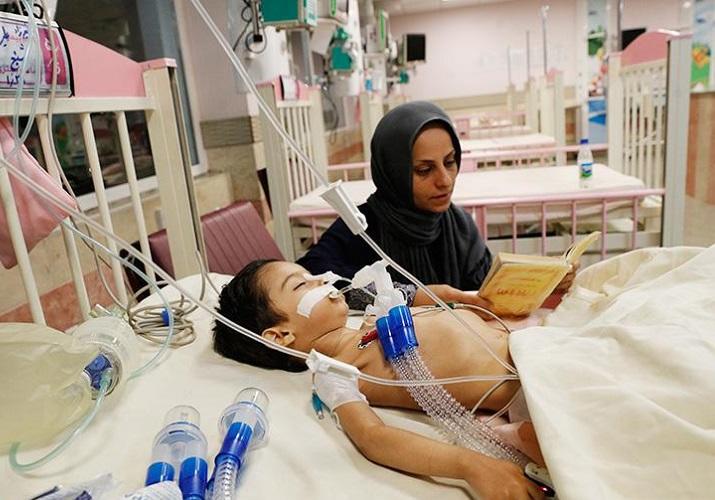US Opens 'Humanitarian Channel' To Iran For Life-Saving Drugs & Basic Staples
In a significant development which could serve to soften soaring tensions between Washington and Tehran, as well as between the US administration and increasingly frustrated European allies, the US announced Thursday the opening of a new "humanitarian aid" banking channel with the cooperation of Swiss authorities through which the sanctioned country can find relief in terms of importing badly needed medicines and staples like food.
Since pulling out the 2015 nuclear deal nearly two years ago, the Trump White House has faced stinging criticism from the EU over extensive and unprecedented sanctions preventing children, elderly and other common Iranians from treating curable diseases or obtaining basic life-saving drugs. The Europeans have since erected an alternative sanctions-busting payment vehicle called INSTEX, said to focus initially on humanitarian-related transactions, after the Iranians were booted from SWIFT.

In a Thursday statement the Treasury Department said “The successful completion of these transactions provides a model for facilitating further humanitarian exports to Iran,” but also noted transactions are “subject to strict due diligence measures to avoid misuse by the Iranian regime.” It further touted that “Cancer and organ transplant patients in Iran were the first to benefit from the new channel,” per the statement.
Switzerland is the key European country facilitating the program, which has been in the works since 2018. Reuters describes current participants as follows:
Geneva-based bank BCP and drugmaker Novartis took part in the pilot deal, with the humanitarian channel expected to be fully operational within weeks, a spokeswoman for the State Secretariat for Economic Affairs said.
...Politically neutral Switzerland has been working with U.S. and Iranian authorities and selected Swiss banks and Swiss companies on the plan. The U.S. Treasury Department will provide banks involved with assurances that financial transactions can be processed without violating U.S. law.
Treasury Secretary Steven Mnuchin further said upon the program's roll out that “humanitarian transactions are currently allowed under our sanctions programs, and we encourage companies to use this humanitarian mechanism” [hint: not INSTEX - Mnuchin appears to be saying].
However, this follows months and years of the administration demanding all international companies sever ties with Iran, which has sent the economy and currency into a tailspin, and has ravaged human well-being related industries like aviation, food, transport and medicine.
1. Should be noted that the Swiss "payment channel" for humanitarian trade with #Iran is totally different from EU's #SPV effort. The Swiss gov has been negotiating with the US Treasury for greater clarity for banks with *active relationships* with Iran. https://t.co/Hgbq2rBZWU
— Esfandyar Batmanghelidj (@yarbatman) December 19, 2018
Critics say this new US-Swiss humanitarian channel is not only too-little-too-late, but still has overly difficult and cumbersome hurdles in place which could actually further disincentivize pharmaceutical companies from doing business with Tehran.
Bloomberg outlines some of these restrictions further:
In a four-page document released in October, the Treasury Department laid out the expectations of any financial entity wanting to use the Swiss banking channel. The “enhanced” due diligence includes restrictions on dealing with the Iranian central bank, which holds the nation’s forex reserves but is sanctioned.
Requirements also include the identities of Iranian customers, balance sheets of any Iranian customers’ accounts at the bank and a list of business relationships of the Iranian entity receiving the humanitarian aid.
That will certainly prove overly invasive even for those parties willing to test the waters.
And despite INSTEX still making slow progress - though beset by continued difficulties in implementation - many are already declaring the death of the Iran nuclear deal, especially following the near 'state of war' reality between the US and Iran after the killing of Qassem Soleimani. This also as Iran has said it's blown past all uranium enrichment limits stipulated by the JCPOA.
It could further be argued that the new US 'humanitarian channel' is itself meant to reinforce the US position that the deal is already dead. It appears Washington's 'saving face' attempt to shield itself from criticism in the future, given the sanctions regimen will likely only push the population of Iran to the brink of humanitarian disaster, while simultaneously only increasing the people's dependency on the regime.
https://ift.tt/2RZokmI
from ZeroHedge News https://ift.tt/2RZokmI
via IFTTT




0 comments
Post a Comment